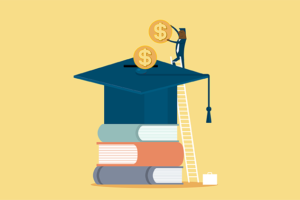Financial vulnerability is a widespread issue, one that too often stems from a persistent gender gap in financial education. Women face unique financial challenges: they tend to live longer than men, spend less time in the workforce and earn lower wages. Along with the financial complications of divorce and widowhood, these factors add up to a world where women are more likely to be financially vulnerable than men.
In an attempt to explain this gap, the RAND American Life Panel found evidence that this gap was not because of gender itself — in other words, it is not caused by inherent differences between how men and women handle money. Instead, the study found that the spouse with a higher level of financial education was most likely to make financial decisions in marriage. This underlines the importance of equal levels of financial education across both genders.
Financial vulnerability is a widespread issue, one that too often stems from a persistent gender gap in financial education.
The first steps to financial education are essential — everyone should know how to do these things, regardless of gender:
How to Build a Financial Foundation
• Know your credit score.
• Keep track of your debt.
• Budget.
• Use a savings account.
• Pay outstanding bills.
• Save for retirement.
For more information and further steps, check out the resources available at The Women’s Institute for Financial Education, The Financial Literacy Organization for Women and Girls, or the Women’s Institute for a Secure Retirement.
People and foundations are working to shrink this gap. For example, 46% of students enrolled in master’s degrees for business in 2019 were women, according to the National Center for Education Statistics. Then there are the groups like the National Girls Collaborative Project that work with schools to help young girls get interested in math as early as possible.
At First Financial Security, Inc®, the LiSA Initiative helps women gain a solid financial education so they can build wealth with confidence. Through LiSA, women are certified by the National Financial Educators Council. From there, they can spread financial knowledge to their communities with engaging material on everything from budgeting to joint bank accounts to the financial complications of divorce.
When FFS sat down with Pahoua Xiong for the Share Your Umbrella podcast, she touched on how powerful it can be to watch women achieve financial independence and security:
“Personally, [the best part is] seeing agents on my team say ‘I can’ more than ‘I can’t now.’ They start to believe in themselves. A lot of my team members have been able to create financial opportunities for themselves and their families. This opportunity can help people become someone that they’d never thought or dreamed they could become — to me, that is so rewarding and fulfilling.”
Women face unique financial challenges: they tend to live longer than men, spend less time in the workforce, and earn lower wages.
Regardless of the cause, we do know that access to financial education has clear results: women are more likely to borrow at lower costs, avoid unnecessary fees in transactions, and build better retirement plans when they have access to financial literacy programs. They can build their own emergency funds and manage their debts. Eliminating the gender gap will help all women protect against loss of income and savings.
A large part of independence comes from a simple control over one’s finances, and all it takes are the right resources to reach the peace of mind that comes with financial security.
FFS Agents – share this post with your networks using our resources in the ABO.




